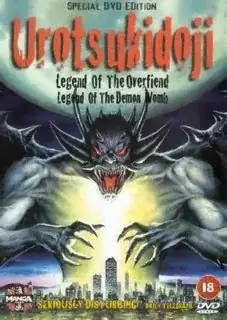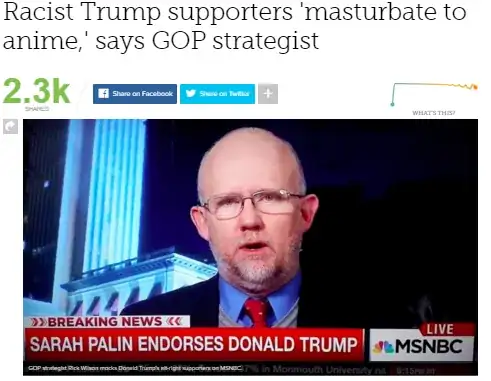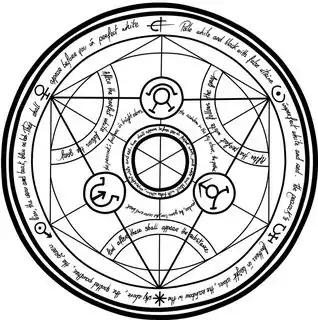In the 90s, Anime (formerly called Japanimation in some magazines and sources) became the latest target of alarmist conservative media due to a set of OVAs titled "Urotsukidōji" or "The Overfiend" in many English translations:

It's a 3 part series which contained masses of animated gore, demon tentacle rape, and horror.
Not only was it offensive to much of the public, it had become very popular - not only amongst hard-core anime fans, but by normal television viewers also. 40,000 copies were sold in Britain - at a time when 500 people was the average attendance for an anime con there.
Having been leapt upon by the media, this of course only amplified its success for anime title would rarely leave their niche viewership.
Sensational journalism by its very nature is intended to elicit a response from the reader/viewer and talk spreads fast in local communities. When finding another "Overfiend"-contender, media outlets are able to remind viewers about the previous controversies - or even tangentially related events, such as a normal anime film release, may be tainted by a headstrong reporter.
This anti-anime sentiment started to spring up in casual use, spreading further propoganda - whether intentional or not. For example, this quote from the British Board of Film Classification about anime :
In Japan it seems, these films provide sex and violence for men, who watch them after work in male clubs where sexual favours are bought and sold.
Which is clearly not true - a lot of the Western world did not think of anime as separate from hentai, and the hentai stories they had been exposed to were selected to be the worst examples. Even now you will see anime being used as an example of something immoral:
 source
source
The fact that anime is produced in the East played a significant factor also, in many people's eyes Eastern people were seen to be different, and weird. Even harmless children's titles such as Pokémon were affected with mass reports of children choking on pokéballs, having epileptic fits and the like. Other popular titles were pounced upon too, like Full Metal Alchemist's use of magic circles or the 'evilness' of the Death Note cast.

Other alarmist conservative media scares include: Dungeons & Dragons, the Harry Potter books and many other niche areas of society - some of which embraced it and took advantage of the attention like death metal bands or ouija board manufacturers.
There of course are hentai titles that are sketchy, which is where it all started from, and there is fanservice that targets pubescent teenagers, BUT what the media has made many people assume that anime is a "genre" of film and all titles are like this. However, anime is a medium that can be about anything - and just like normal filmography - a medium can tell be used to tell the heart-warming story of a boy reunited with his father - or be used for less savoury topics.
(TLDR: Certain controversial titles + echo chamber = reputation)
References:
- Schoolgirl Milky Crisis by Jonathan Clements
Further Reading:


